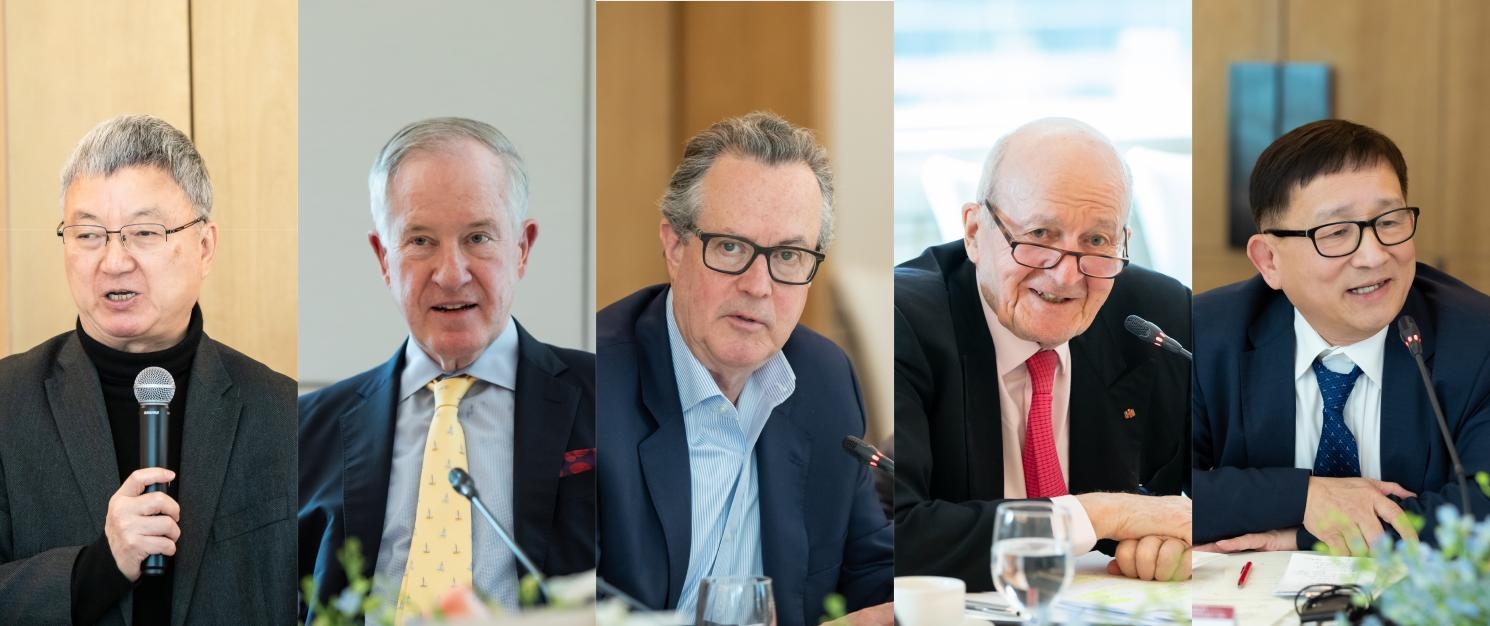
From left to right: Zhu Min, Nicholas Lardy, Douglas Peterson, Peter Jungen, Li Cheng.
The US election, artificial intelligence, and Sino-US relations are the keywords of this closed-door seminar. First, Nicholas Lardy analyzed the nature of U.S. policy toward China from an economist’s perspective. He believes that the U.S.'s policy in the economic and technological fields is shortsighted and overlooks long-term costs, which could accelerate China's move toward self-reliance, thus affecting U.S. companies and employment. Douglas Peterson discussed five key areas: financial markets, trade flows and supply chains, digitalization and artificial intelligence, the green economy, and demographic structure. He suggested that China and the United States should strengthen cooperation in data, artificial intelligence, and the green economy, as these sectors could bring about disruptive transformations across various industries and face a significant funding gap in green financing. Peter Jungen addressed the dynamics between China and the U.S. in terms of current challenges, globalization, technology and entrepreneurship, and artificial intelligence. He remarked that the rapid development of artificial intelligence poses a major challenge and is an important factor influencing humanity. He emphasized that China, the United States, and other countries have common interests and must consider the future development of humanity. Li Cheng discussed the interplay of competition and cooperation between China and the U.S., focusing on two significant events: the U.S. election and the Munich Security Conference. He highlighted three key issues: artificial intelligence and governance, warfare, and financial markets. Following the presentations, the guests engaged in a lively discussion on topics including the long-term economic impacts of U.S. policies on China, the EU's trade policy towards Chinese electric vehicle exports, the TikTok incident, the development and cooperation in artificial intelligence, and higher education in China and the U.S. This conference was hosted by the 50-person Forum on Global Economic Governance and held at Tsinghua University PBC School of Finance. The "50-person Forum on Global Economic Governance" is dedicated to conducting independent, forward-looking, and academically supported policy research on improving and reforming the global economic governance system, offering solutions for China to better engage in global economic and financial governance.